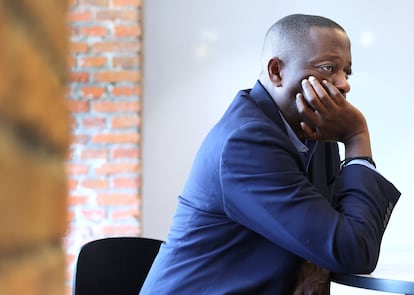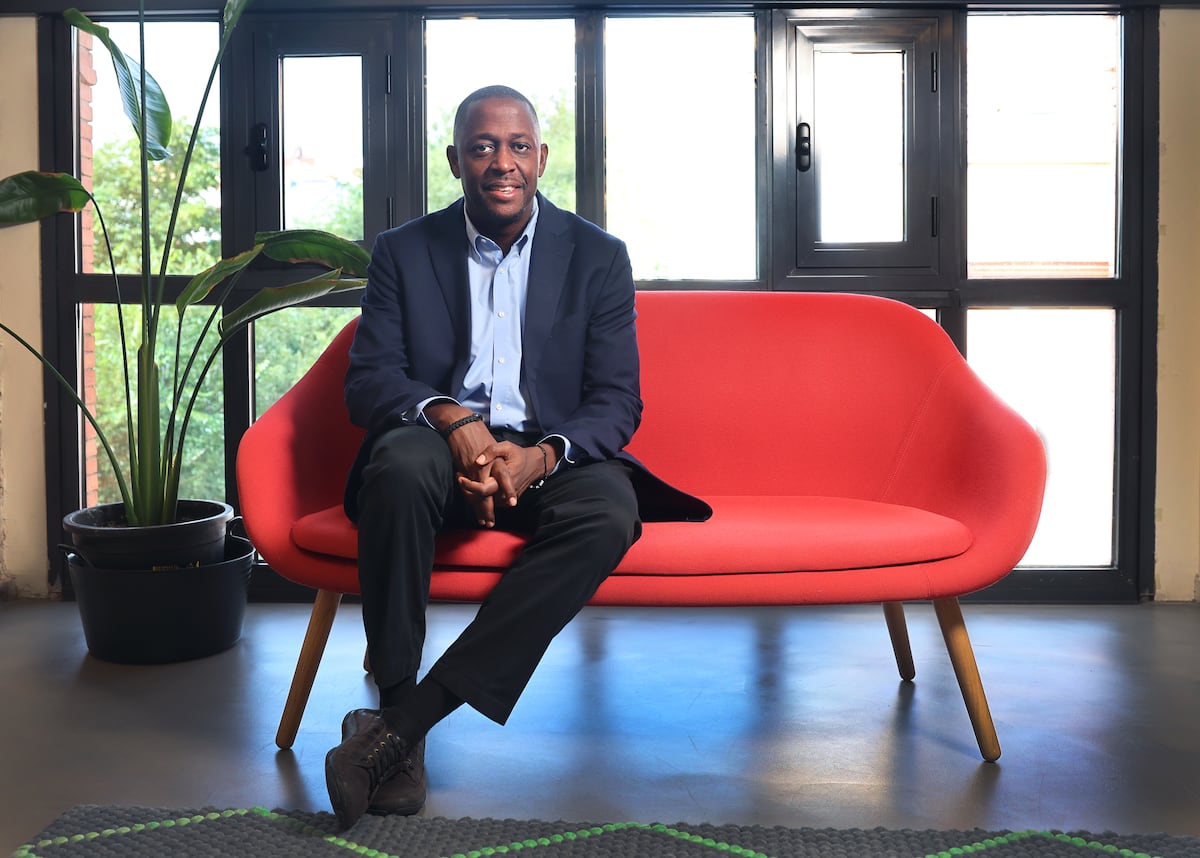Consultations about health issues on Internet platforms have skyrocketed since the pandemic. In Spain, last year they grew 20% on YouTube, according to the director of the health area of this large international platform, Garth Graham (Kingston, Jamaica, 1975). Several reasons have led it to create new functions for Spain aimed at directing people to authorized sources for information on these delicate topics. Visiting Madrid to present them, Graham says that, among them, are the growing searches that have been detected in Spain on mental health and cancer issues and the large amount of misinformation that can be found on the Internet about it.
Graham has passed through some of the best institutions in the world. Trained in Medicine at Yale University (where he completed his degree and doctorate), received a scholarship in the specialty of cardiology from one of the most prestigious medical centers in the world, Johns Hopkins, and with an extensive career in politics, both American healthcare as well as in the private sphere, his current flags, since he joined Google as director of YouTube Health, in 2020, are above all two: on the one hand, the fight against growing misinformation on health issues and, on the other , help achieve health equity.
Ask. Why have you decided to create this functionality aimed at helping people find authorized health sources precisely in Spain?
Answer. Last year, queries on our health-related platform grew by 20% in Spain, reaching 8.5 billion views of videos dealing with these issues. Although it is true that, in general, throughout the world it is a great challenge, since there are many places where they can find misleading or incorrect information. For us, addressing misinformation is a challenge, as it is something we face both in public health, in general, and in health issues, in particular.
Q. What specifically does this new functionality offer?
R. This global effort by YouTube Health revolves around creating partnerships that help provide people with high-quality health information, that is, based on authoritative sources, such as the World Health Organization or the United States National Academy of Medicine Challenge . To achieve this quality information, we have established collaborations with various Spanish hospitals and public and private health institutions.
Last year we launched initiatives to fight misinformation about miracle cures.
Q. What are the specific problems that you have detected regarding misinformation in the health field?
R. There are a couple of areas that stand out above the rest. One of them is misinformation around vaccines, something that we already saw a lot during the Covid 19 pandemic and that, after it, is still very high. Another problem that is seen, in terms of misinformation, is miracle cures. These are remedies that can divert people from searching for the correct cure for their problems. That is why, last year, we launched initiatives to fight against the misinformation offered about miracle cures, especially about cancer.
Q. As a doctor, why encourage people to go search for information on the Internet with new content instead of directly advising them to go to a specialist? Each case is a world.
R. YouTube is a good place to get health information and answer some of people’s questions, but it is not a substitute for your doctor. It is important that patients and members of our community continue to visit their doctor and use platforms like ours to obtain health information either as a complement to their doctor visits or when they need to seek additional information that may be useful in their treatment. .

Q. What type of content are you going to generate that can help the sick or their families?
R. We generate health information that seeks to answer the most common questions that people ask on YouTube about their health. For this, in Spain we work, for example, in collaboration with the Gregorio Marañón Hospital and other private centers that are also making an effort in this regard. These collaborators work in the field and know well the questions that concern people most about their health and can provide the most accurate answers because they know the environment in which people ask them.
Q. What are the particular topics most consulted by Spanish YouTube users?
R. People look for a lot of information about cancer, but also about diabetes, depression or anxiety. But we see that concern about these diseases is common throughout the world. That’s why it’s important that when they look for answers on platforms like YouTube, we provide them with high-quality, evidence-based health information and that the answers to their questions come from credible institutions that have provided us with the information.
“It is important to fight against misinformation in health”
Q. One of the objectives of this project is to provide the tools that aim to care, specifically, for the mental health of young people. Because?
R. We need to ensure that we take steps to make young people safe on our platform. We have launched initiatives around, for example, eating disorders, so that young people are not exposed to information that may have a negative consequence for them, even if it does not have a negative consequence for an adult.
Q. Another part of this new YouTube functionality is for patients to tell their experience. How are they going to manage this content while conveying the message of each particular case?
R. What we do is highlight patients’ stories about their experience so that other patients can learn from it. And when they look for that information, it will reflect that these are general experiences. Another aspect that seems important to us is that people listen to all the different versions, that they obtain information from different sources, it is vital to fight against misinformation.
Q. YouTube and Google have gone from being a search engine to an organizer and creator of content, whereas before they simply disseminated it. Is there social responsibility behind this change and is it not just due to business criteria?
R. Yes, there is. We want the community and users to know that we are acting and promoting things focused on their best interest. It’s certainly good from a business angle as well, because as people understand that we’re acting responsibly, that helps build engagement and trust between the platform and people. When the content comes from a credible source, we label it, communicating it so that they know it and so that, if they want more information, they click on that link.
Q. Another issue about which there is a lot of concern since the covid-19 pandemic is mental health. Has this been noticed in searches on your platform?
R. Yes, it is an important topic, I would say all over the world, during the pandemic, after and also today. Since then, people are more interested in understanding their mental health. In Spain last year there were more than 300 million views of videos about it, which is a lot for content like mental health.
Q. Are they usually from patients, from people who suffer from these problems?
R. People come to the platform looking for health information that they previously obtained from other people or through other means. Some are looking to learn about an issue that may not affect them, but they are interested in understanding more about a particular area. And also, of course, there are people who are looking for answers because they are experiencing the problem themselves and want to have more information. So I think it’s necessary for hospitals or other healthcare institutions to really engage with where patients are and develop information that they can easily access.
Q. With artificial intelligence (AI) there is an increasing need, globally, to guide people so that they do not fall for biased information. What role does YouTube want to play in all of this in relation to health information?
R. When we created this health tool, we used AI to refine the information, so AI allows us to work in many ways to get better quality information. But we also have to have strategies to mitigate many of the risks that AI introduces. Therefore, it is vital to create strategies to address challenges and misinformation, for which AI is also often used.
